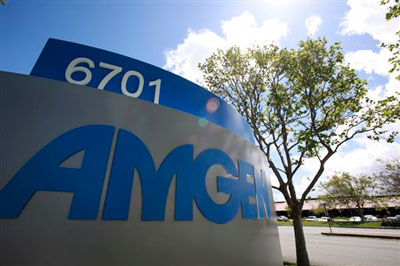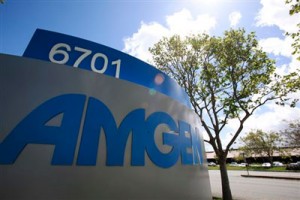Amgen presents positive first Phase 2 data for AMG 334 in the prevention of episodic migraine
Posted: 18 May 2015 |
Amgen has announced the first results from its global Phase 2 study evaluating the efficacy and safety of AMG 334 for the prevention of episodic migraine…


Amgen has announced the first results from its global Phase 2 study evaluating the efficacy and safety of AMG 334 for the prevention of episodic migraine.


The study met its primary endpoint of reducing monthly mean migraine days compared with placebo. The data were presented at the 17th Congress of the International Headache Society (IHC 2015).
AMG 334 is a fully human monoclonal antibody under investigation for the prevention of migraine by inhibiting the calcitonin gene-related peptide (CGRP) receptor that is believed to transmit signals that can cause incapacitating pain.
In the trial, 483 patients were randomised to subcutaneous monthly placebo or AMG 334. Patients had a mean baseline of 8.7 migraine days per month. The primary endpoint was the change from baseline in monthly migraine days at week 12. Patients randomised to a 70 mg AMG 334 dose observed a statistically significant 3.4-day reduction in monthly migraine days compared with 2.28 days observed in the placebo group.
Phase 2 data further validates AMG 334 as a potential preventative treatment for episodic migraine
“Migraine is a complicated, underdiagnosed neurological condition that has significant impact on the everyday activities of those who live with it, and for the millions of people around the world who are affected by this disease, significant unmet therapeutic need persists,” said Sean E. Harper, M.D., Executive Vice President, Research and Development at Amgen. “We are encouraged by these Phase 2 data, which further validate AMG 334 as a potential preventive treatment for episodic migraine.”
Secondary study endpoints included a 50% responder rate, monthly migraine attacks, and safety and tolerability. Key exploratory endpoints included change in monthly headache days and change in monthly acute migraine-specific medication use days. AMG 334 demonstrated a statistically significant increase in the 50% responder rate compared with placebo. Furthermore, reductions in monthly headache days and monthly migraine-specific medication use days were also statistically significant in patients taking the 70 mg AMG 334 dose compared with placebo, respectively.
The dose tolerability profile of AMG 334 was similar to placebo across all dosing groups. The most commonly reported adverse events included fatigue, influenza, nasopharyngitis, arthralgia and back pain.




